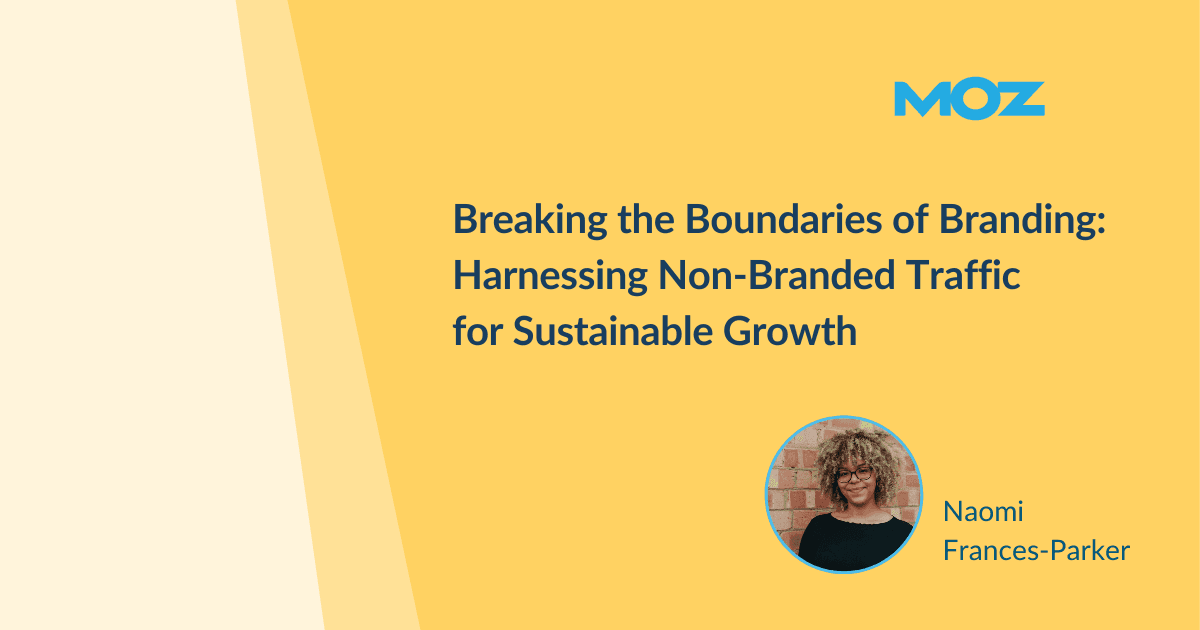Non-branded traffic comes from users who don’t know who you are, so this includes users who:
Have a problem or need but don’t know how to fulfill it
Know what product they want but don’t know where to find it
Want to better understand a specific product
Are researching a particular topic
All of these users have a shared goal: They are looking for information and want to find a website that gives them what they want.
This is why search engines exist and why you, as a company, want to rank at the top of these search engines to prove to users that you’re their best choice so you can hopefully make a sale.
Google’s mission statement encapsulates this:
“Our mission is to organize the world’s information and make it universally accessible and useful.”
Search engines have no interest in selling your products; instead, they want to help their users by providing them with the information they’re searching for. If you happen to provide that information in a way that makes sense for the user, then it’s likely you’ll come out on top.
In other words, you need to deserve to rank.
Informational searches: Why your website needs to become an information resource
Your website needs to be more than a shop window to successfully appeal to users who are not aware of your brand and what you have to offer. You need to earn their trust and prove to them that you’re the best choice for them.
It’s estimated that around 80% of search queries are informational, so these users aren’t even at the buying stage of the marketing funnel yet. These are users who are looking for guidance, so your offer needs to match that user intent. These users are also far more likely to trust you if you’re the business that provides them with that guidance.
This is the easiest way to bring users into your ecosystem at an earlier stage so they can get to know your brand while they’re at the top of the funnel and conducting their research. Then, as they develop their understanding, their relationship with you strengthens as they move down the funnel so that by the time they do come to buy, it’s a no-brainer for them to pick you as their first choice.
Studies have shown that over 40% of consumers are willing to pay more for brands they trust. By turning your website into an information resource with good content that fulfills a user’s need regardless of where they are in the marketing funnel, you’re demonstrating your expertise in a way that adds value to the user and that, in turn, builds trust.
Put simply, this is how you turn non-branded traffic into branded traffic and reap the benefits of both.
Commercial searches: utilizing non-branded searches on commercial pages
It’s tempting to think that non-branded keywords have no place on commercial pages because they’re selling a product or service that is particular to your brand, but this is where some of the most lucrative traffic can be found.
Commercial pages speak to the users who know what they want but don’t necessarily know where to find it. These users are likely to search for short-tail keywords that can be branded but aren’t always, and this is where the real opportunity lies.
Let’s take the keyword ‘womens jeans.’
According to Moz’s Keyword Explorer, this term gets between 2,000 and 4,000 searches per month, which is huge.
